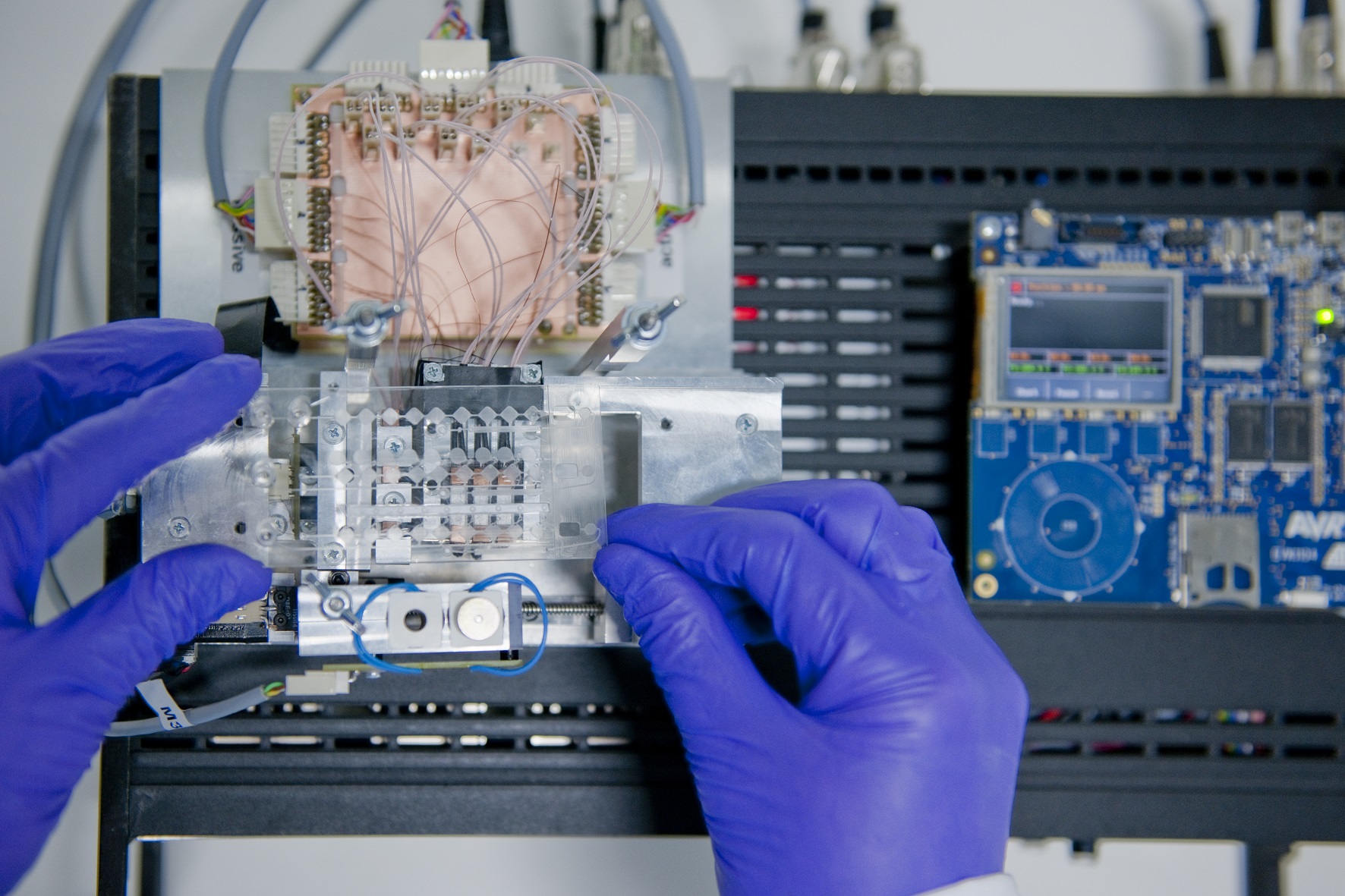Fraunhofer opens up prospects in structurally weak regions
Research and innovation help to generate and secure economic growth and prosperity. However, the conditions for successful innovation processes vary widely. In Germany's structurally weak regions, where around 40 percent of the population lives, society and stakeholders face particular challenges.

Overcoming these and providing the impetus for sustainable innovation-based structural change is the goal of the "WIR! - Change through Innovation in the Region" funding program. In the current funding phase, a total of 23 alliances across Germany are being funded by the Federal Ministry of Education and Research with up to 15 million each over the next 6 years.
With the concept of developing technologies for future-proof point-of-care diagnostics based on microstructured manufacturing processes and sustainable materials, the Fraunhofer Institute for Cell Therapy and Immunology (Leipzig) and the Fraunhofer Institute for Machine Tools and Forming Technology (Chemnitz) are coordinating one of these alliances.
The common goal of the so far more than 50 partners is to establish and expand value chains in the Chemnitz-Gera-Leipzig region in order to establish sustainable economic growth in the field of point-of-care technologies. For so-called lab-on-chip systems, complex laboratory diagnostic procedures must be miniaturized, automated and partially digitized. They should be fast, inexpensive and operable without specialized personnel and provide reliable measurements in a short time. Areas of application are primarily clinics, medical practices, but also care facilities and emergency services.
Interdisciplinary cooperation is required for development and translation. In addition to biological and biomedical expertise, competencies are required in the areas of toolmaking, microfluidics, microsensors, data processing, AI, among others. Newly developed methods must be tested in clinical settings and coordinated with regulatory authorities. Users and end users must be trained and their feedback fed back into the development process.
With the alliance "WE! are DIANA", the two Saxon Fraunhofer Institutes are now starting the implementation phase. In several workshops in the first half of 2022, they will first define which technological challenges of point-of-care systems are being addressed. Potential solutions will then be investigated and further developed in joint research projects.
Supraregional partners can also be involved in order to integrate the necessary competencies and technologies. For example, Saxony's strengths in mechanical engineering and medical technology are to be complemented in particular by expertise in microfluidics, microsensors and digitization.
